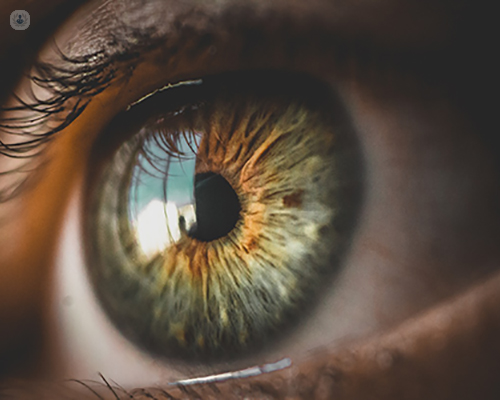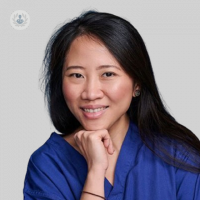AMD: Understanding symptoms, types, and management
Written in association with:Age-related macular degeneration (AMD) is a prevalent eye condition and a leading cause of vision loss among people aged 50 and older. Understanding this condition, its symptoms, and management options is crucial for those who may be affected. This article from Ms Sharon Heng aims to provide a clear and comprehensive overview of AMD.

What is AMD?
AMD impacts the macula, which is the central portion of the retina responsible for clear, detailed central vision. The retina is the light-sensitive layer at the back of the eye that sends visual information to the brain. When the macula is damaged, it leads to difficulties in seeing fine details, reading, and recognising faces.
Types of AMD
AMD primarily manifests in two forms: dry and wet.
1. Dry AMD: This is the most common form, accounting for about 80-90% of cases. It occurs when the macula thins with age, gradually leading to blurred central vision. Small yellow deposits, known as drusen, form under the retina, contributing to the deterioration.
2. Wet AMD: Though less common, wet AMD is more severe and can lead to rapid vision loss. It occurs when abnormal blood vessels grow under the retina and leak fluid or blood, causing damage to the macula.
Symptoms to watch for
AMD develops gradually, and early stages might not present noticeable symptoms. As it progresses, common symptoms include:
• Blurred or fuzzy vision
• Difficulty reading or recognising faces
• Straight lines appearing wavy or distorted
• Dark or empty areas in the centre of vision
Risk factors
Several factors can increase the risk of developing AMD, including:
• Age: Risk increases with age, particularly in individuals over 50.
• Genetics: Family history can play a significant role.
• Smoking: Smokers are at a higher risk than non-smokers.
• Diet and lifestyle: Poor diet and lack of physical activity may contribute to AMD.
Diagnosis and treatment
If you notice any changes in your vision, it is important to see an eye specialist. Regular eye exams can detect AMD early, often before significant vision loss occurs. During an exam, your eye doctor may use various tests, including a visual acuity test and retinal imaging. While there is currently no cure for AMD, several treatment options can help manage the condition and slow its progression.
1. Lifestyle changes: Adopting a healthy diet rich in leafy greens, fish, and nuts, along with regular exercise, can support eye health.
2. Medications: For wet AMD, anti-VEGF injections can help stop the growth of abnormal blood vessels.
3. Laser therapy: In some cases, laser treatment can seal leaking blood vessels.
4. Low vision aids: Magnifying devices and special glasses can help make the most of remaining vision.
Living with AMD
Living with AMD can be challenging, but many people find ways to adapt and maintain a good quality of life. Staying informed, seeking support, and making use of available resources can make a significant difference. Regular check-ups and following your doctor’s advice are essential steps in managing this condition effectively.


